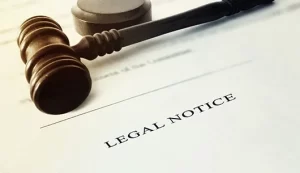Will I Have A Criminal Record On My Background Check in California?


An employer or another interested party might perform a background check to screen a person’s criminal history (i.e., arrests and convictions for misdemeanor or felony offenses). Background checks gather data from several sources, including your criminal and driving records.
Your criminal history will not include arrests that did not lead to conviction, convictions dated more than seven years prior, convictions for which you received a pardon, arrests leading to completion of a diversion program, expunged and sealed convictions, and certain marijuana offenses.
The good news is that California imposes some restrictions on employers when performing background checks. California’s new “ban the box” law prohibits employers from inquiring into your criminal history before offering you conditional employment. This means they can no longer ask the common question: Have you ever been convicted of a felony?
There are several options to clear any negative information that might appear on your background check. One is an expungement, which releases you from any negative consequences of a prior conviction for a misdemeanor and even a felony. You could be entitled to an expungement if you have successfully completed probation or your jail term. Once your conviction is expunged, you no longer need to disclose it to any potential employers.
Another option is a Certificate of Rehabilitation, which is a court order saying you’ve been rehabilitated, or have stayed out of trouble for a defined period of time following your criminal conviction. Though this does not remove your conviction, you can show your certificate to an employer who might otherwise deny your employment.
A governor’s pardon also relieves many of the penalties associated with your conviction and is granted to those who have been rehabilitated after a period of seven to ten years, depending on the crime. It’s unlawful for an employer to gain access to information about a crime that’s been pardoned.
If your criminal record includes juvenile offenses, you can seal those records, meaning the court closes your file and they’re no longer a matter of public record. You can even legally say you do not have a criminal record.
A Hanford, CA criminal defense attorney can help you determine the best way to control the information that might appear on your background check. At the Carlos Navarrete Law Firm, we have experience navigating the bureaucratic processes necessary to clear your record. For more information about how we can help with your criminal record, contact us to schedule a consultation.
103 W. Grangeville Blvd
Hanford, CA 93230
Get Help Today
Request A Consultation
Fields Marked With An * Are Required
"*" indicates required fields

